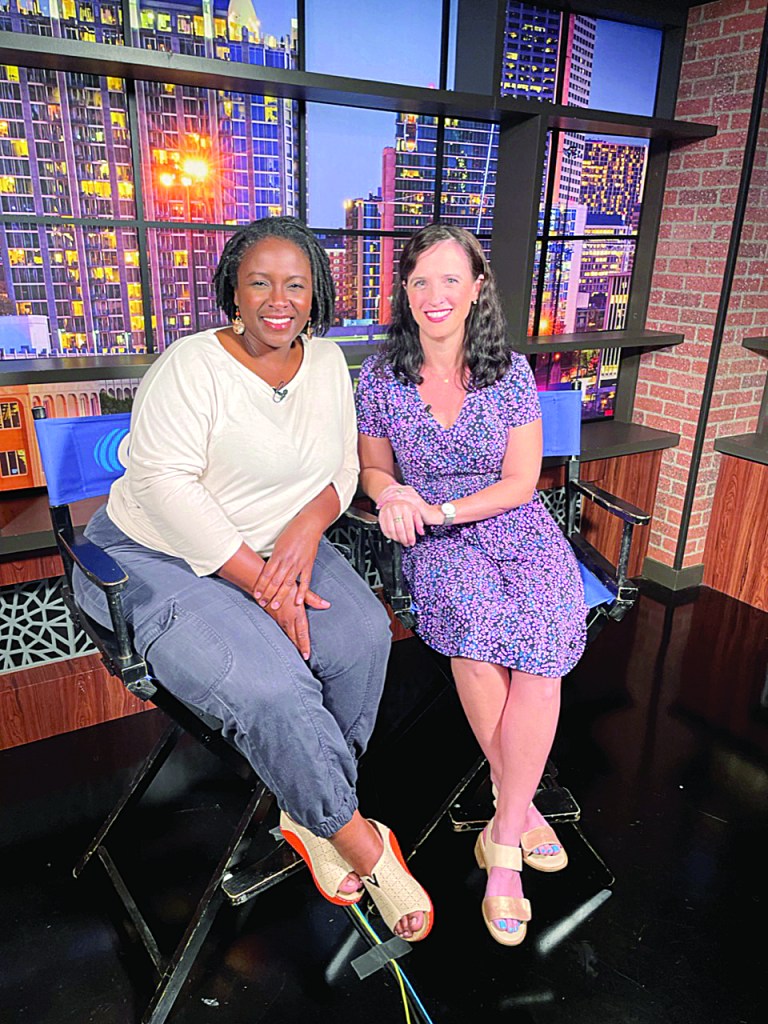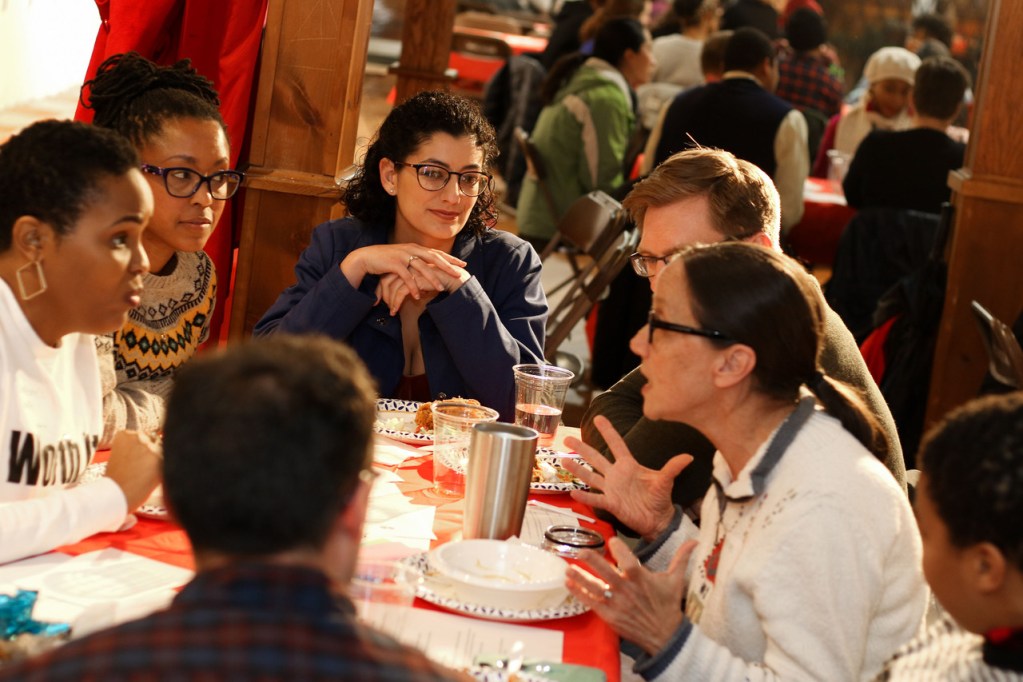
An ambitious plan to seat 5,000 Atlantans around 500 dinner tables to learn more about the 1906 Atlanta Race Massacre is in the works thanks to a nonprofit that has its origins in one of the city’s theater companies.
Equitable Dinners Atlanta – a collaboration between Out of Hand Theater, the National Center for Civil and Human Rights, The King Center, Partnership for Southern Equity and more – will host the special event on Sept. 18. Attendees will watch a short play, then participate in a guided conversation about anti-racism and Atlanta’s past, present, and future.
“We want to create a positive meaningful interaction among racially diverse strangers around the subject of race,” said Ariel Fristoe, Out of Hand Theater founder and artistic director. “There is something magical about being in someone’s home and sharing a meal together that calls out the best in people – kinder, more respectful, and better listeners.”
Founded in 2001, Out of Hand works at the intersection of art, social justice, and community engagement – pairing short plays or films with information to inspire conversation, empathy, and action. Rather than a brick-and-mortar theater, Out of Hand meets audiences where they are, such as in homes, community centers, and online.
“We wanted to make events about issues that matter…where the audience has a vital role,” Fristoe said. “We realized what we really care about is racial justice and economic justice – so now those are the pillars of everything that we do.”
The nonprofit is led by a three-member executive team that includes a director of equity and activism, artistic director, and managing director. More than 90% of its artists are people of color, mostly Black.
“Here we are an organization founded in white leadership and we’re talking about anti-racism,” said Director of Equity and Activism, Adria Kitchens. “Our commitment is – we are on a journey. We will probably get some of it wrong but are still trying to move forward.”
That journey includes recruiting 200 host homes across metro Atlanta by the end of July for the September Equitable Dinners event. Each host is responsible for coordinating the food (usually potluck style) and welcoming the actor, facilitator and guests.
Starting in August, guests can register for the free event and will be assigned to a host location based on diversity software by Mixtroz, a Black-led event management, and networking platform.

“We are intentional about racial diversity first, gender, as well as age [for each location],” Kitchens said.
Guests are invited to bring a dessert, side dish, or bottle of wine but more importantly, an open mind.
“You show up at the host’s house and meet a small group of [8-10] people,” Fristoe said. “We send a facilitator for every table and actor for every location.”
The host will share a prepared welcome speech with a narrative about the 1906 Atlanta Race Massacre written by the Equal Justice Initiative in collaboration with the Fulton County Remembrance Coalition (FCRC).
“We acknowledge this painful moment in Atlanta’s history and how that contributes to race and racism in Atlanta today,” Fristoe said. “We feel like we have to acknowledge the past to make a better future.”
This commemoration is also aligned with National Center for Civil and Human Rights’(Center) Truth and Transformation project which seeks to memorialize hidden or forgotten history to shed light on today’s challenges.
“Part of the dinners is to bring to life..[what] happened in Downtown Atlanta where at least 25 Black people were lynched by a mob of 5,000 white people,” Jill Savitt, Center President and CEO said. “There are echoes of our life today because they were incited to violence because two candidates for governor were trying to out sensationalize each other by scapegoating the Black community.”
The Center is working with the city to have elected officials attend the September dinners. A grandson of Luther Price, who witnessed and survived the 1906 massacre, will also be among the guests.
At all the gatherings, the focus will shift from the past to the present, with a 10-minute one-person play about the experience of being Black in Atlanta in 2022, coming out of the pandemic, and a year of racial reckoning.
“We hire about 100 actors – adult Black men, women or nonbinary people, and send them to different locations all over Atlanta,” Fristoe said.
After the play, as guests share a meal, the facilitator will invite them to discuss “your own personal experience with race, how the play touched you, what actions can we take individually and collectively to help make a better Atlanta,” Fristoe said.
This large-scale endeavor is a bold next step for Equitable Dinners Atlanta, which began in 2019. During the pandemic, the organization pivoted to virtual presentations.
For the next two years, the Equitable Dinners Life Every Voice online series addressed an anti-racism topic each month – health, housing, criminal justice, voting rights, and more – with a guest speaker, a 10-minute play, and facilitated Zoom breakout-room conversations.
“It is important that we all get comfortable discussing and acknowledging what has happened and what continues to happen in this country,” shared, Allison Bantimba , FCRC co-founder and Equitable Dinners design team member. “By engaging in this discussion with strangers, you are able to step outside your bubble and listen to experiences that you have not had. To me, this is an experiment that tests our ability to empathize, to question and challenge what we may believe is the norm, and to take what we learn and create positive change in our communities.”
For more details, visit equitabledinners.

